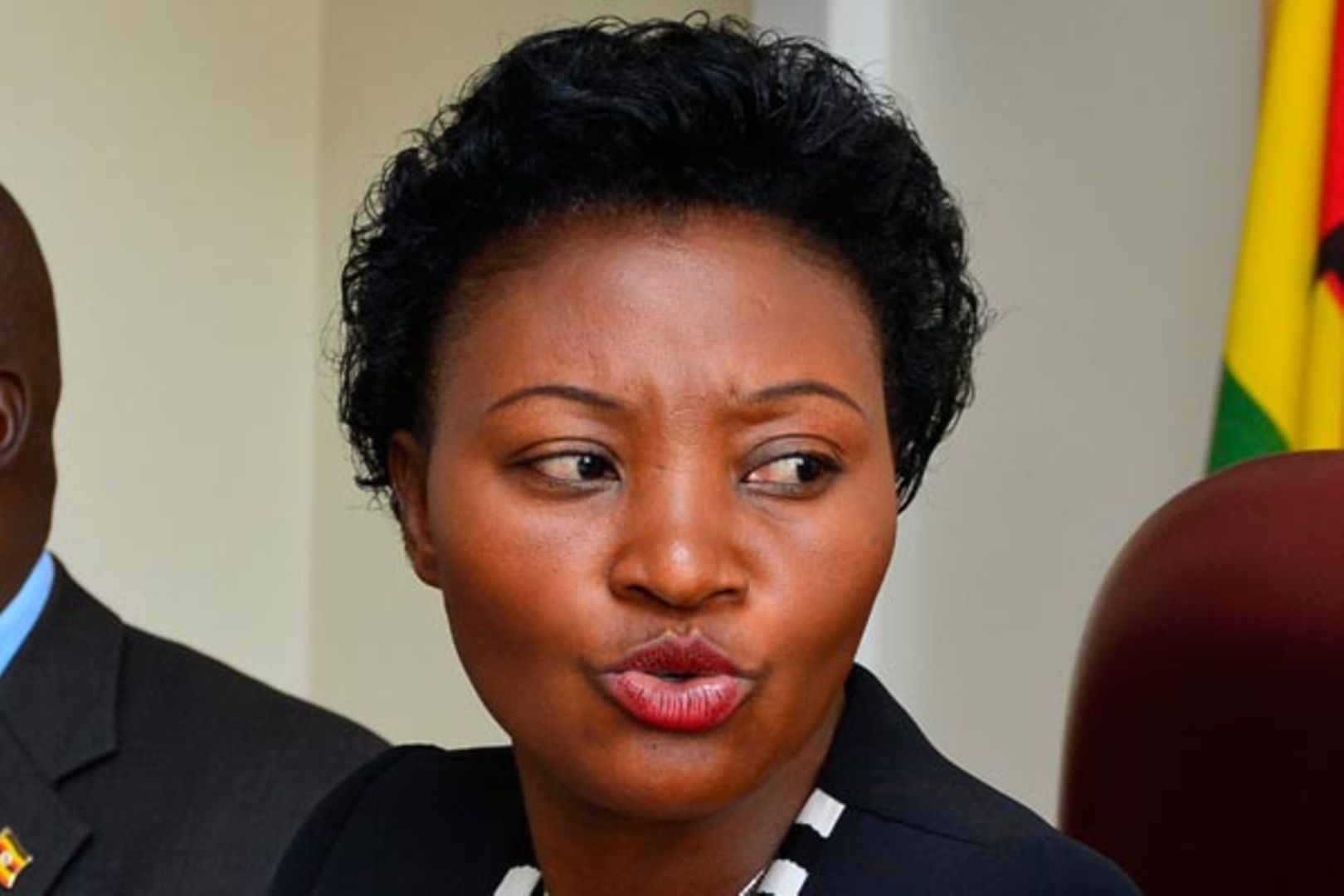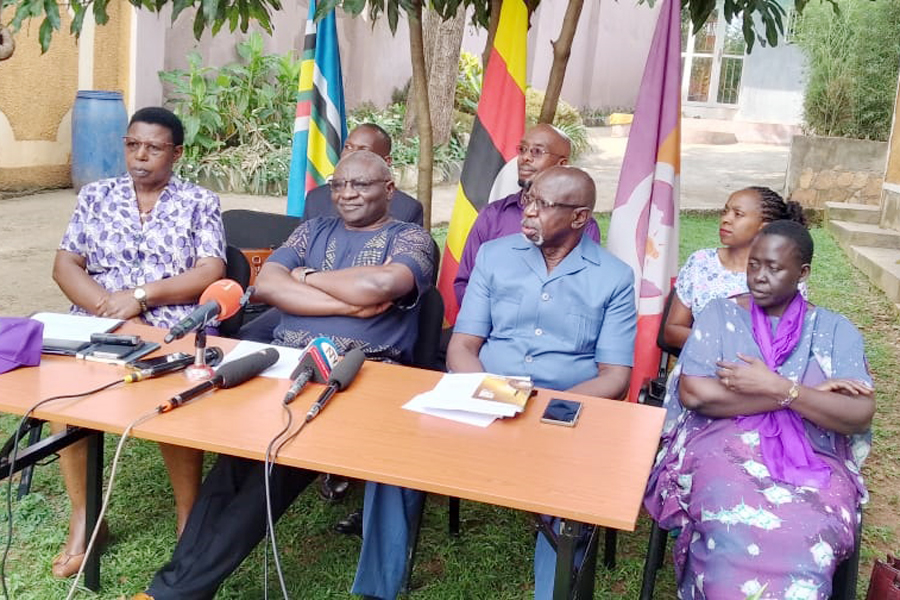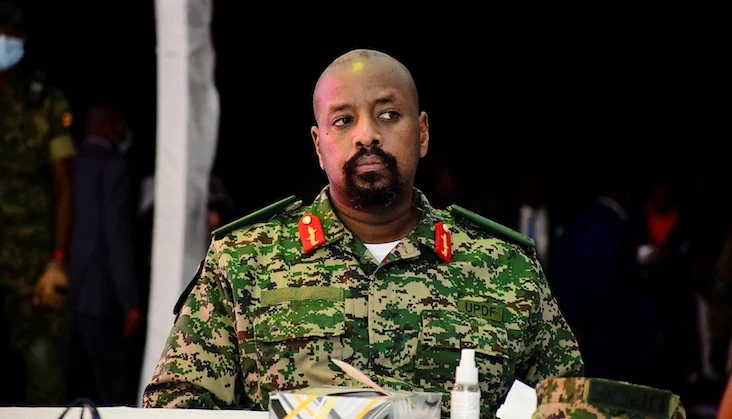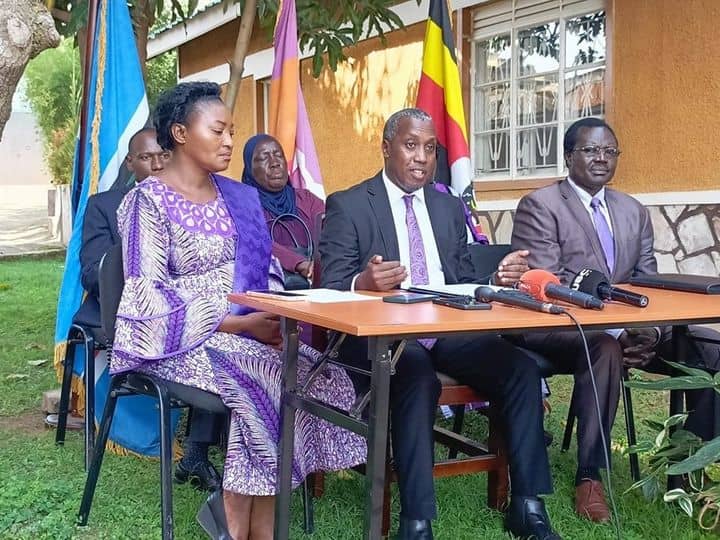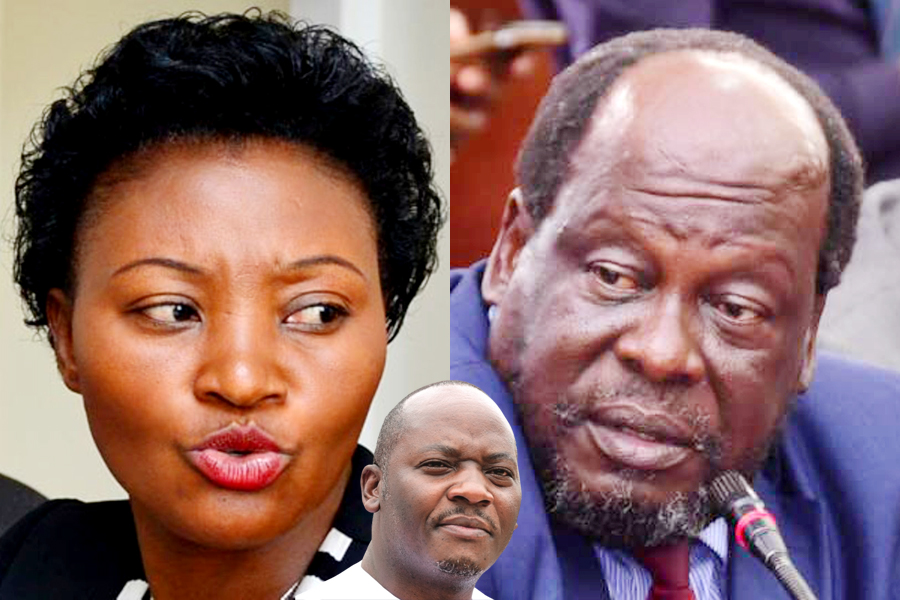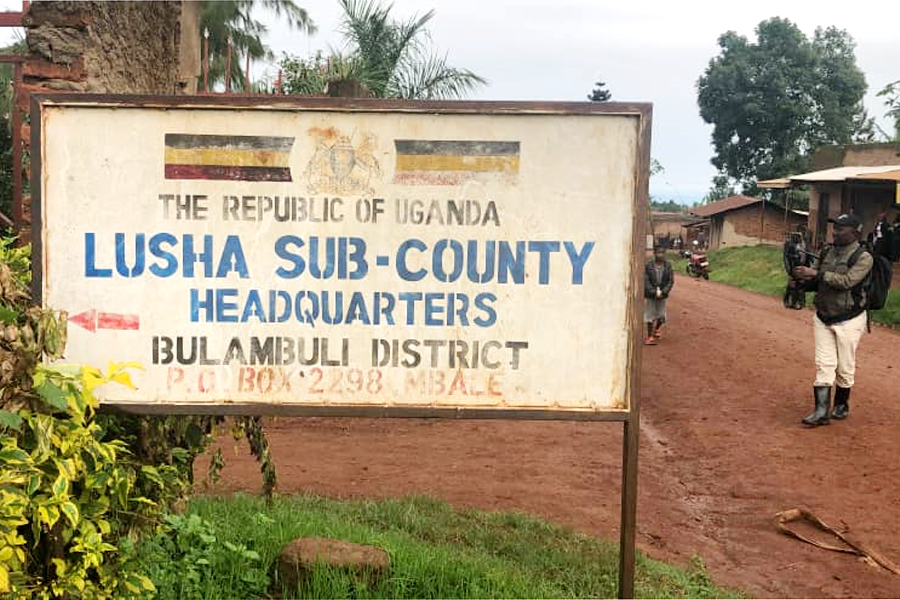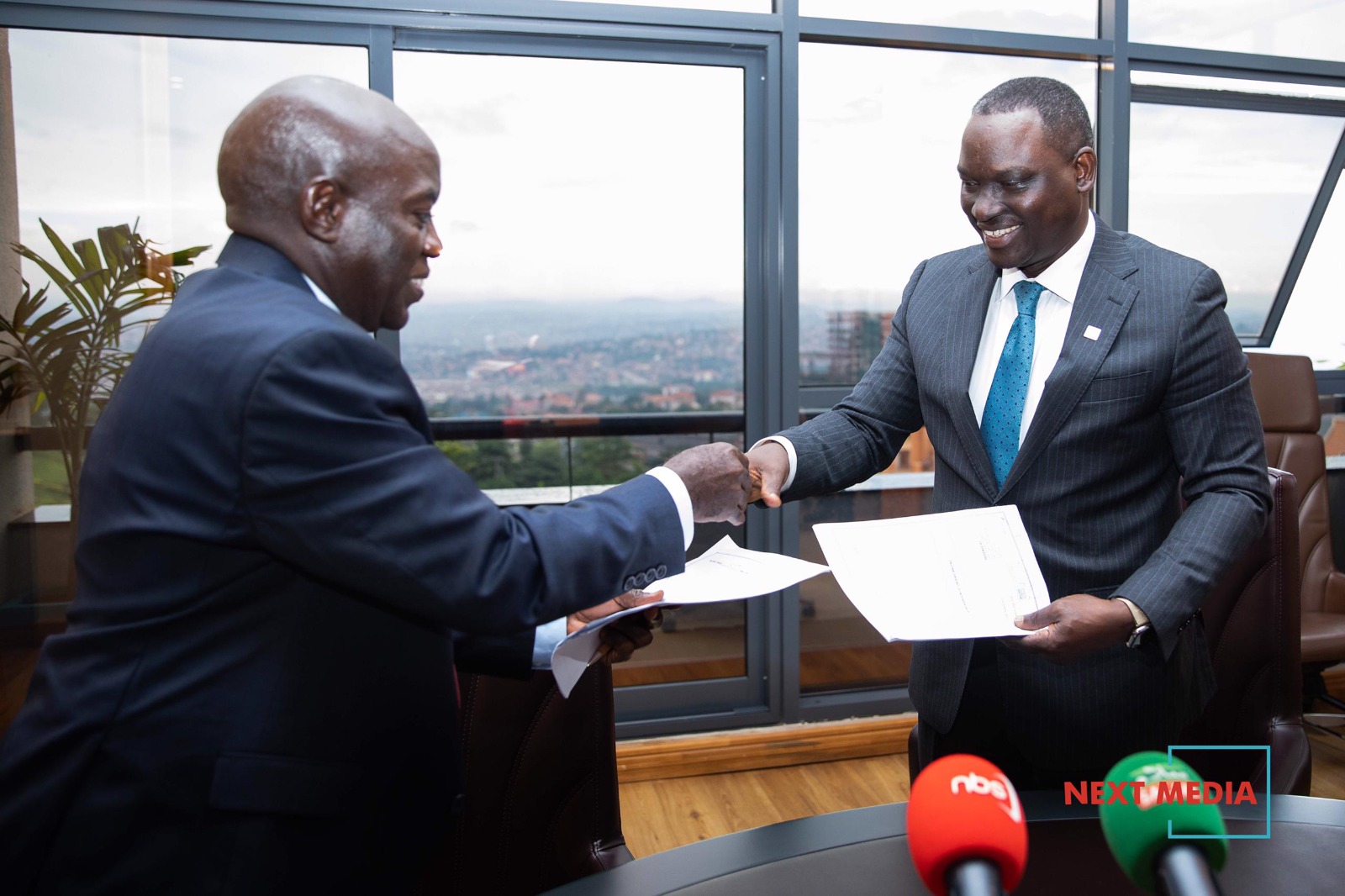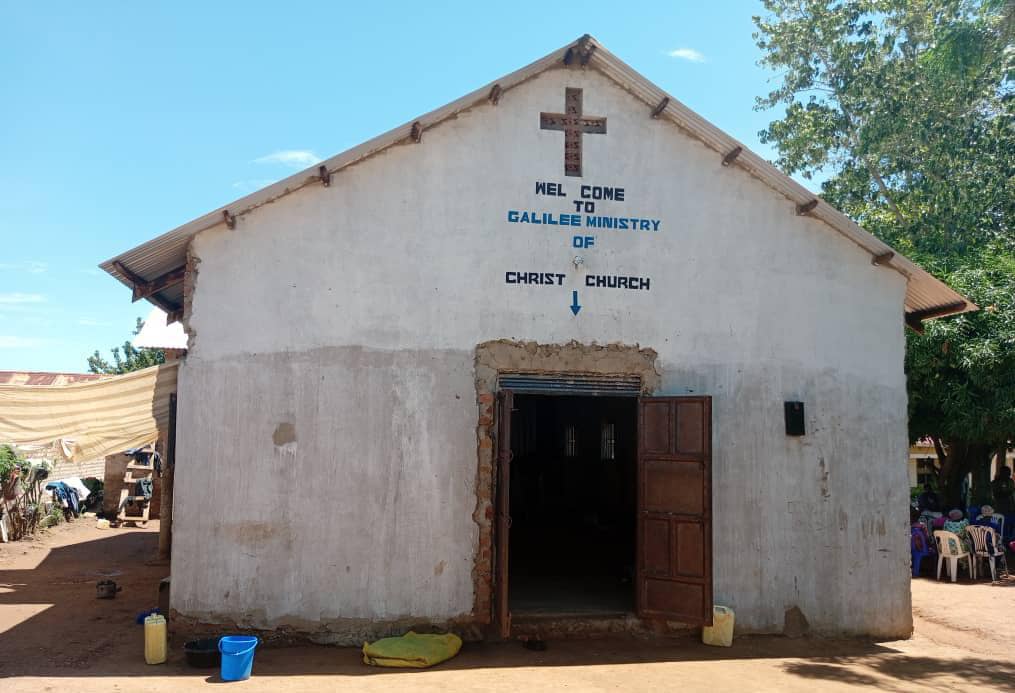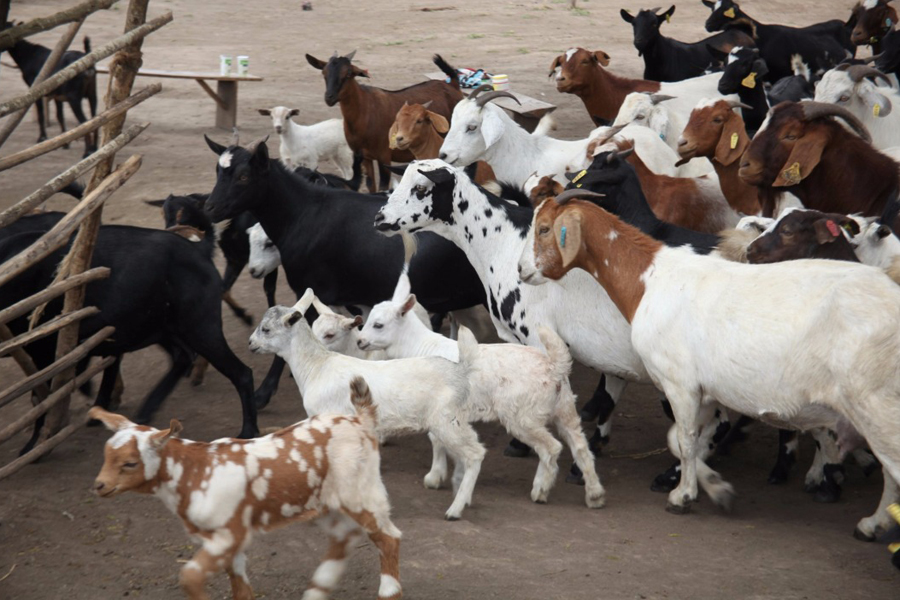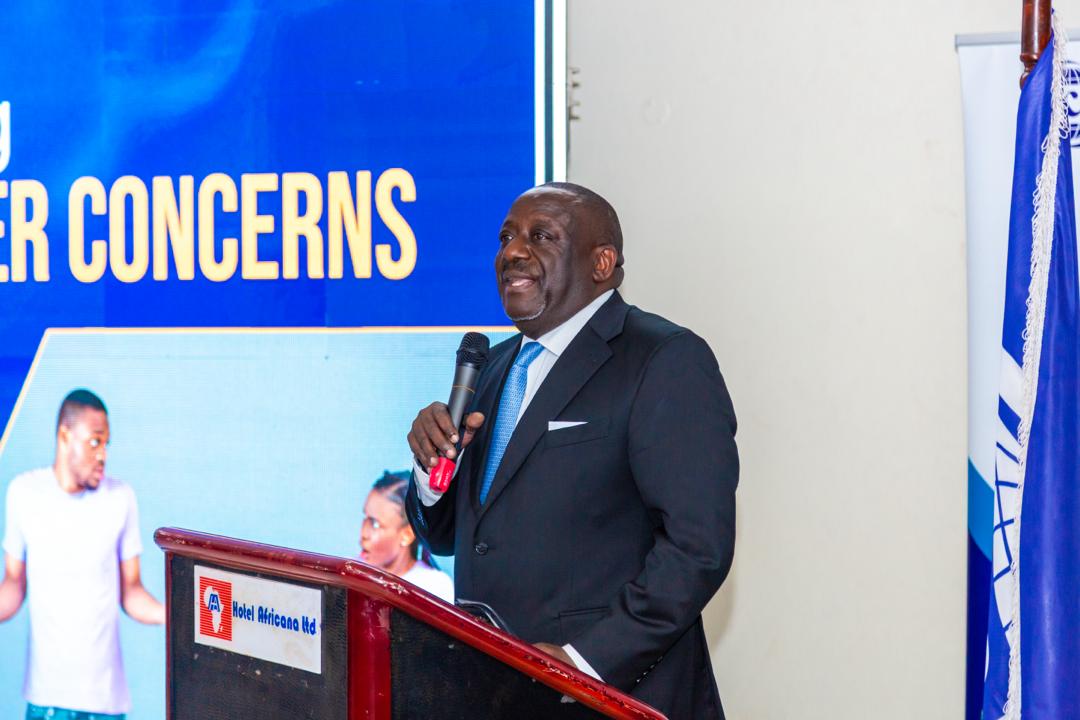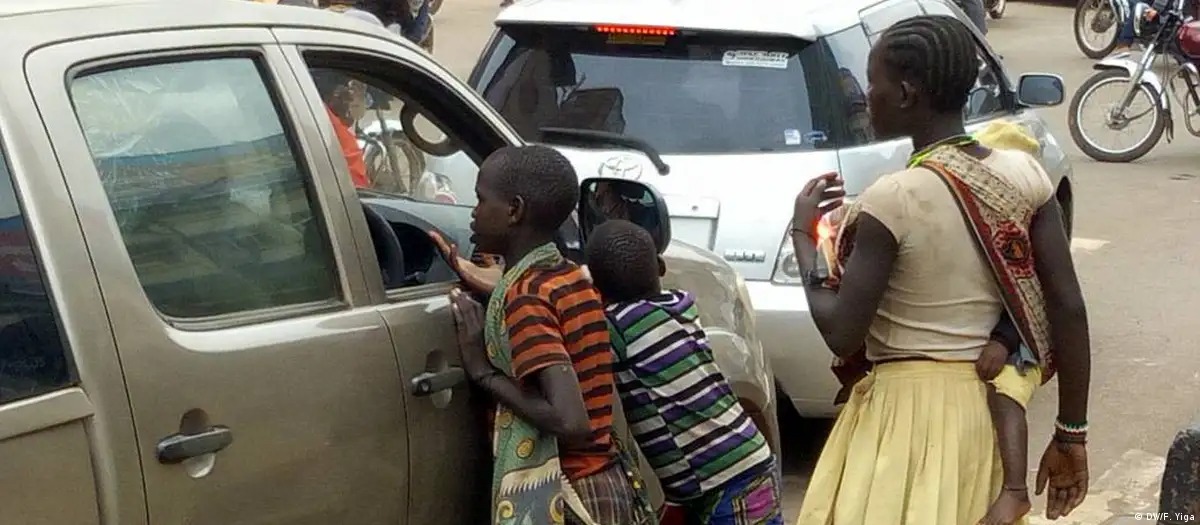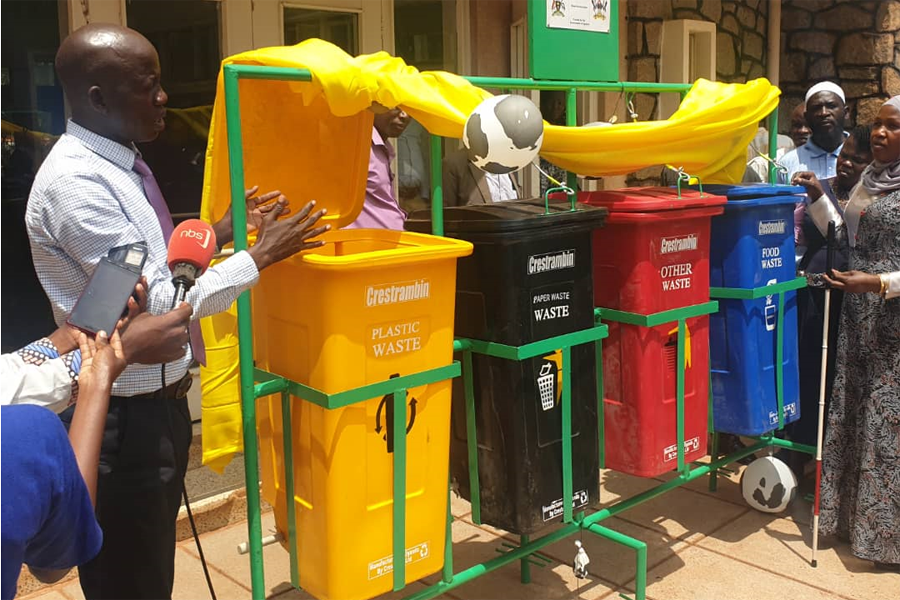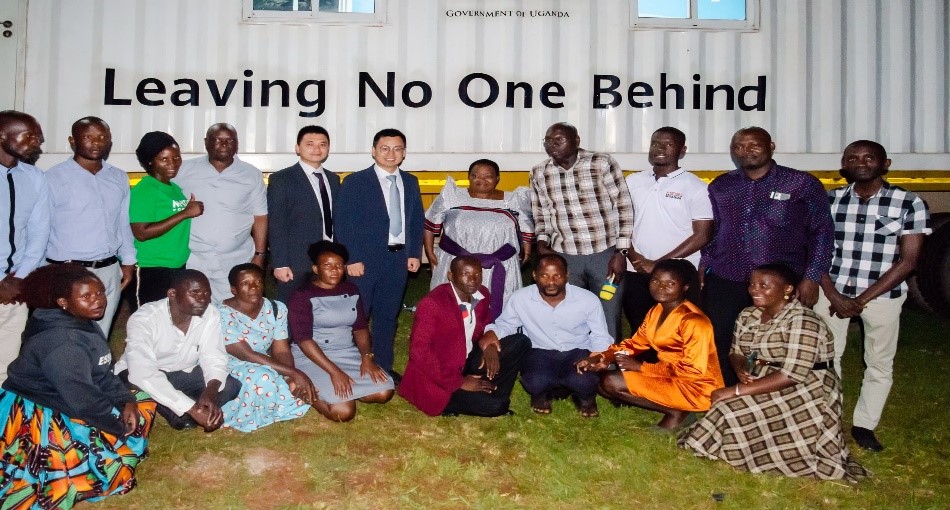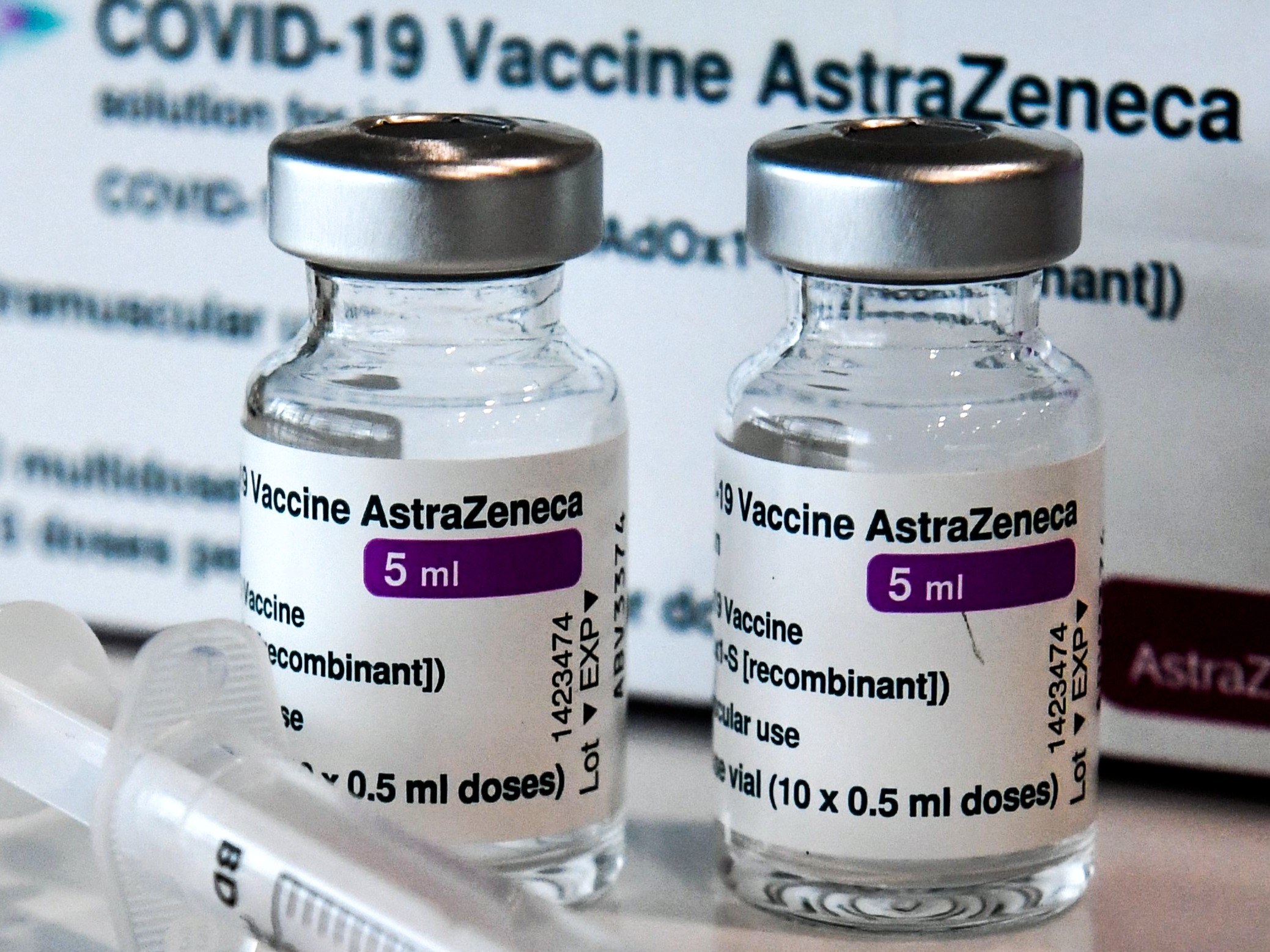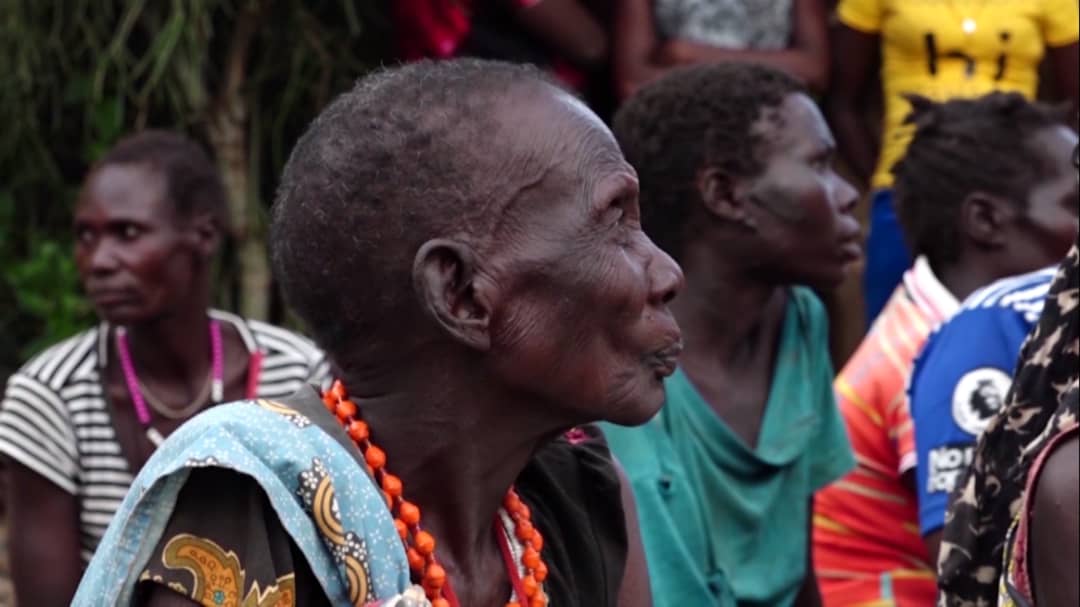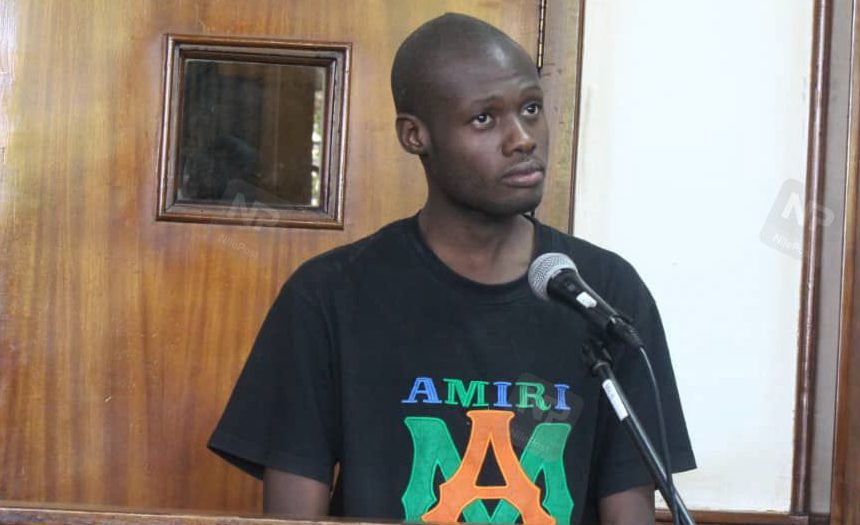BIG INTERVIEW: Claims that I don't want Winnie Kiiza near Muntu is false - Alaso
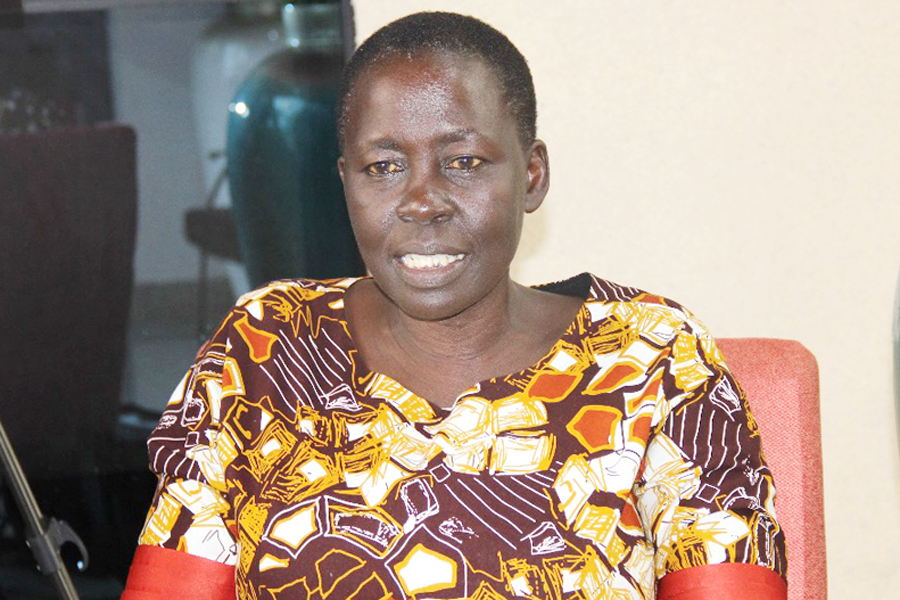
It seems that some individuals are attempting to fabricate stories to tarnish ANT's image. I'm being completely honest with you.
BIG INTERVIEW | There have been reports of conflict between Alice Alaso, the acting national coordinator for the Alliance for National Unity Transformation (ANT), and Ms Winnie Kiiza, a former Leader of the Opposition and one of the top political figures in the new political party. However, in a wide-ranging interview with the Nile Post, Alaso denied these claims, stating that there are no conflicts within the party.
Excerpts;-
Keep Reading
***********************
Launched in 2019, how would you assess the performance of ANT in the recent general elections?
We didn't perform very well, but we weren't expecting a powerful performance either, considering we were just entering the stage and hadn't established the necessary infrastructure. In some areas of the country, we didn't even have a coordinator.
Despite fielding a number of candidates for Parliament, unfortunately, none of them were declared winners, including those we anticipated would be.
What do you mean by 'those you expected to be declared winners'? Isn't the declaration is based on performance?
We ended up with two candidates who possessed declaration forms indicating their victory, namely Hon Paul Mwiru of Jinja East and a young man named Ismail Kasule in Hoima. However, they were not officially declared winners.
Consequently, we did not secure any parliamentary seat. Our sole success came in the form of an LCV chairperson position in Terego, which was particularly gratifying for us. Terego remains one of the top-performing districts in Uganda, and this achievement continues to fill us with pride.
Additionally, we achieved some victories with candidates securing representation in district councils, division chairperson positions, and sub-county chairperson roles. This is our current position, and it's the foundation upon which we are building.
As we approach the 2026 election, do you believe that you're poised to command the political stage as a fully matured political party?
I wouldn't definitively say yes or no because we're approaching this from two angles. Firstly, we recognise the significance of participation, so we're focused on bolstering our numbers.
Secondly, we're committed to fostering leadership that truly comprehends our values, thereby steering our party in the right direction. As we gear up for 2026, our strategy is twofold: increasing our numbers significantly—aiming to triple our representation—and ensuring that those stepping into leadership roles align with our vision.
There's a groundswell of support nationwide for our party, with many eager to carry our flag. We firmly believe that the key to transforming Uganda's political landscape lies in changing its culture and elevating the caliber of leadership. Mere reshuffling won't suffice; genuine change demands a shift in mindset and approach.
Your patient approach to assuming leadership appears to contrasts with Uganda's enabling of President Museveni's power consolidation, as some contend.
I think it's a flawed argument to characterize patience as the defining trait here. We aren't simply refraining from making threats; rather, we are witnessing a political landscape in Uganda where impatience seems to prevail. So, the pertinent question arises: Why do impatient figures manage to ascend to power if patience isn't the route to authority?
Moreover, why does our leadership persist in maintaining the status quo? We have yet to see any concrete plans for changing the leadership's character in this country. Mere replacements without a commitment to integrity only perpetuate the perception that leadership is merely a platform for personal gain, devoid of any sense of duty.
Is ANT truly advocating for the necessary changes in our country's politics, and can it effectively deliver the change we seek? If so, what risks might persist, potentially hindering its ability to be a frontrunner in this transformation?
I think it is understandable and perhaps they are even correct to think that ANT is not moving first because Ugandans are used to political parties giving deadlines, giving threats and so many things.
The only problem with a political mind of the ordinary person is that they don’t evaluate, so they don’t call these parties to account for every word that they say.
We think we should be held to account for every word that we commit to and therefore we are not going to issue threats and we are not going to panic, we are not going to create promises which if we will fail to deliver, the public will be demanding of us.
NRM recently claimed to have registered 18 million members, suggesting near-universal membership. What are your thoughts on this?
That is a lie. Those statistics lack verification. It seems like a typical strategy employed by the NRM to psychologically condition Ugandans for upcoming elections, inducing them to dismantle their affiliations for the sake of these statistics.
I firmly maintain that without access to government structure and resources, the NRM ceases to function as a viable political entity.
You advocate alliances but FDC's rise weakened DP, Uganda Federal Alliance weakened FDC, ANT weakened FDC, and NUP fractured FDC and DP. Isn’t this a contradiction?
In a certain light, it might appear contradictory, but let me address some of the underlying factors as best I can. Not everyone in ANT originated from the FDC; we have leaders who were never part of the FDC to begin with.
Speaking on behalf of some of us who were part of FDC, our departure was a strategic choice. At the time, the party was torn between two approaches. One group advocated for building the party's infrastructure and utilising it to manage party affairs, while another group (which believed in defiance, led by Patrick Amuriat) gained leadership through a vote.
We realised that our roles might become redundant under this new leadership, despite still feeling we had contributions to offer.
Did you mean to say that you felt unable to make your contribution within the party?
We found it nearly impossible because it would divide the group. One faction favored a structured approach, while another leaned towards defiance. We feared this would cause internal division within the party.
We decided to step back and allow the defiant members to lead for the next five years, hoping they could expedite our journey to State House. It was a strategic decision based on these dynamics.
Five years later, ANT still operates with interim leadership. Without clear structures from grassroots to national levels, do you believe your critics are justified in feeling vindicated?
From our perspective, we believe we're taking the right steps and effectively communicating our message. We're actively engaging with communities, introducing ourselves where we haven't been before, and adhering to the benchmarks we've set for ourselves.
Regarding self-evaluation, we recognise that we're not achieving everything we set out to do at 100 percent, primarily due to resource constraints limiting our actions. Despite this limitation, we're content that we're still moving in the direction we aim to go.
Many once strong parties like UPC, DP, and FDC are now weak, with NUP also facing internal issues. Can these small entities challenge NRM dominance, and how can the issue be resolved?
We're not suggesting that we're avoiding responsibility, a closer look at Uganda's political landscape reveals that much of the functionality within political parties is fueled by the dominant NRM, be it through financial backing or the influence of their agents.
It's difficult to find a political party untouched by the invisible hand of the NRM, attributing a significant portion of their operations to its sway.
You are assigning blame...
I preferred not to delve into the intricacies of other political parties, but consider this: within the DP, some members are in government while others remain outside; similarly, the UPC has factions both in and out of government.
Moreover, the internal disputes within the NUP and FDC leadership, as you've noted, are partly influenced by external forces. When I assert that a portion of our opposition's challenges stem from an unseen influence, it encompasses these dynamics.
What did you expect?
What did we anticipate? We're well aware of these occurrences. This is the harm that has afflicted the majority of political parties. We must endeavor to strengthen ourselves against such manipulation, though it's not without its challenges.
Even within ANT, we've learned of brewing disagreements among leaders.
I have not yet learned the specific disagreement, but I'm eager to be informed about it.
We have heard that there are conflicts between you and Winnie Kiiza to the extent that she's not allowed near your party leader, Major-General Mugisha Muntu. How accurate is this information?
But as of now, Honourable Winnie Kiiza and Gen Muntu are together in Hoima, sharing a laugh. Would you like me to call her? The claim isn't true. I had a conversation with Winnie recently, and we spoke and she has not told me that there is a fight. She assured me that everything is fine.
It seems that some individuals are attempting to fabricate stories to tarnish ANT's image. I'm being completely honest with you. We don't have any issues. Winnie is leading campaigns and mobilisation efforts. She called me on Thursday and said she was joining the team in Hoima, which is led by Gen Muntu. If there were any issues between us, how would you explain this? She's there, and I'm here, so [it doesn't make sense].
Could you explain to the public why, five years later, ANT still lacks substantive leadership?
The enormity of the task is evident. Presently, our focus extends to 70 districts this year, in addition to the nearly 50 districts previously engaged. This ambitious endeavor aims to mobilize over 120 districts, reaching at least the sub-county level.
Upon achieving this milestone, the next step is to convene a delegates' conference. Mobilizing down to the sub-county level automatically triggers the necessity for such a conference nationwide, culminating in the establishment of a robust and substantive organizational structure.
What could the contribution of opposition parties over the last 40 years to take over power?
Regardless of the current strength of political parties in Uganda, it's undeniable that their presence is crucial. Without them, the country would likely be in a worse state. While opposition parties may not have succeeded in overthrowing the ruling party and taking the presidency, their existence has undeniably influenced the political and governance landscape of the nation.
Can we say that the opposition message lacks attractiveness or isn't packaged in a manner that effectively elucidates key issues capable of resonating with Ugandans?
It's entirely feasible to make promises and generate excitement among Ugandans today, only to find them unfulfilled tomorrow morning. In such instances, accountability becomes paramount; we stand by our word and will be held accountable for it.
It's also important to be realistic about the challenges we face and convey to Ugandans that progress won't come easily or quickly. However, by laying a solid foundation, we can ensure sustainable growth in the future.
What is your promise in 2026 as a political party?
In 2026, we will present the nation with not just a manifesto but a clear political roadmap. Additionally, we will put forth a strong presidential candidate and a slate of candidates for various positions in the upcoming general elections. Ultimately, it's up to Ugandans to place their trust in us and grant us the mandate to lead.
Are you planning to field a presidential candidate as an actor or as a participant?
I don’t believe you're inclined to dismiss the calibre of candidate we intend to offer. Rest assured, we are committed to presenting someone of substance and credibility.
As a former MP, the service awards for Parliamentary Commission members sparked a dispute between Mathias Mpuuga and his party. What's your opinion?
The service awards, if they originated from Parliament, should have undergone discussion. When there's a conflict of interest, those affected shouldn't be the ones making the decisions. Hence, it's irregular for commissioners to self-award.
Joining a political party entails certain sacrifices. While I'm unaware of NUP's code of conduct and values, if Mpuuga's actions contradict their aspirations, the party is justified in taking action through their established processes to sanction a member.
Do you think NUP has handled this matter well?
To arrive at such a verdict, it's essential to understand the commitments each member of the political party has made. It's crucial to ascertain if NUP has fully utilised its internal procedures. If NUP had a clear agreement with its members upon joining the party, and if deviations from that agreement occurred, and NUP has invoked all relevant mechanisms, then their handling of the situation would be appropriate.


